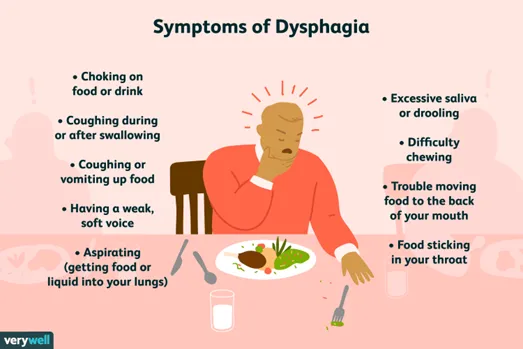Loved ones with difficulty swallowing (called dysphagia) must be watched and monitored while eating and drinking. Caring for someone we love requires nurturing them while ensuring their nutritional health. If you see signs of struggling to swallow, immediate action is required. Many conditions could create swallowing difficulties; however, no matter the cause, caregivers must pay attention. A few that come to mind are strokes, Alzheimer’s disease, Parkinson’s disease, dementia, cancers, and neuromuscular dysfunctions, the ones that weaken swallowing muscles.
Why Is Dysphagia A Concern?
Why is dysphagia a concern? I’m glad you asked! If the muscles stop working together, food does not reach the stomach. Aspiration occurs when food, drink, or saliva goes the wrong way and ends up in the lungs. Gurgling sounds, coughing, gagging, or choking are signs of food/drink in the wrong place. If your loved one has any swallowing problems, there are things you can do to keep them safe.
Dysphagia Care and Monitoring
It is important to be with a loved one while they eat. Always ensure they are sitting up when eating and drinking. Some foods are easy to swallow, and the thickness of the nutritional content matters. It would also be a great idea to speak with a nutritionist about the kinds of food and drink. Some liquids require a “thickener,” which is used to give consistency to liquid-type foods and drinks. Provide ample time for mealtimes to allow for chewing and complete swallowing. Serving smaller portions and finger foods can also be a benefit. Serve foods with moisture that helps to swallow. Avoid dry food, and after meals, it’s important to do correct oral care to make sure no food is in the cheeks.
As Your Proactive Caregiver Advocate, I want you to pay particular attention to your loved one if swallowing problems are noted or have been diagnosed by a healthcare professional. Coughing, choking, and struggling to swallow require immediate attention. Regardless of the cause, swallowing problems can be life-threatening and cannot be taken lightly. Never leave a loved one alone while eating, especially if they have poor swallowing deficits.
Be Safe! Be Well!
Dr. Cynthia J. Hickman is a retired registered nurse and case manager, CEO of Your Proactive Caregiver Advocate and author of From the Lens of Daughter, Nurse, and Caregiver: A Journey of Duty and Honor, and The Black Book of Important Information for Caregivers.

